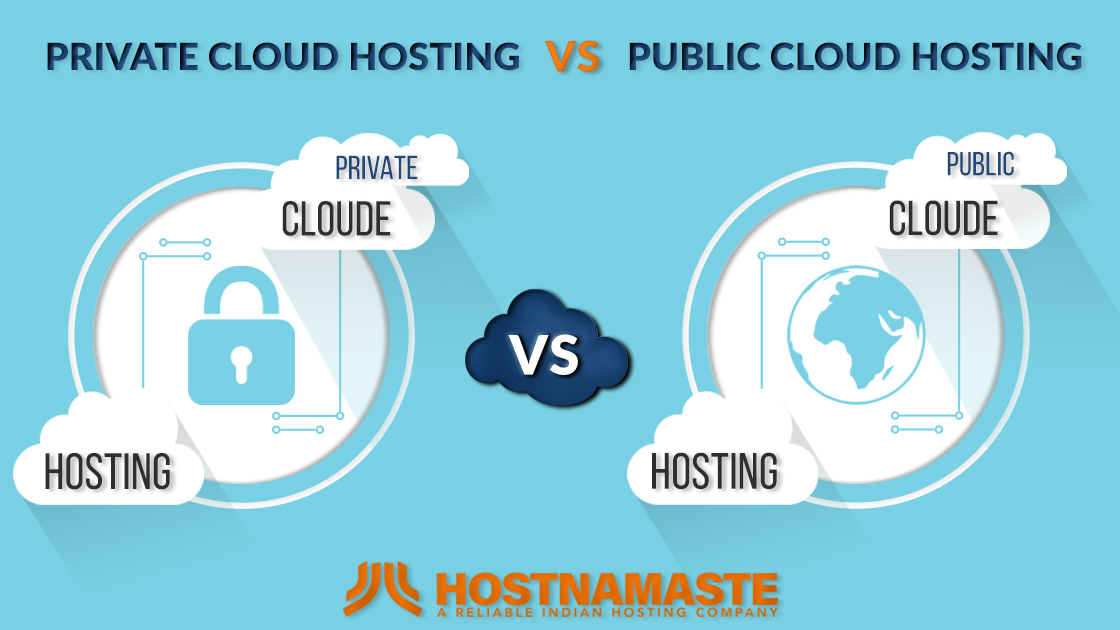
It is incredibly important to get the right cloud hosting setup for you to get the most of your resources. Otherwise, your money as well as time will be wasted on a service provider, who does not offer you your required security, services and applications. It is important to differ between different cloud hosting options to make an informed decision that does not put you within limitations.
Cloud computing has become one of the most important factors throughout organisations all over the world. The affordability, efficient and availability that a virtual server infrastructure offers has almost infinite scalability owing to its web-based interface. Its speedy adoption has also been contributed due to its versatile nature, in all cases. However, despite all such benefits, some organisations still hesitate in moving to cloud based hosting. If you are a company or business owner, you need to consider what benefits will have a cloud hosting offer you, and whether it suits your business model or not.
The primary two types of cloud hosting can be classified into the following categories:
Public Cloud Hosting
Public Cloud Hosting, also commonly referred to as Shared Cloud hosting allows the user to host his/her own resources on a shared server. All the computing services are provided publicly over the server, with only partial access to the underlying infrastructure. The benefit of public cloud hosting is that it is cost-friendly, and does not require a huge amount of income. You share a part of your website resources on the server, without having to look over the hardware, software and administration. The public cloud hosting server resources are shared over other websites, using the same server. If you make a change in one website, it may also reflect in the others. It restricts you upon your creativity, and only limited resources are allocated to your company. As more computing power is needed, a public cloud can also be scaled up according to your requirements.
Private Cloud Hosting
A private cloud system is defined as a dedicated virtual platforms running software to provide an organisation the capabilities of running virtual services and machines. As the infrastructure is not shared among anyone else, compliance and performance are guaranteed. The full control of the allocated resources resides in the hands of the organisations. This offers a huge benefit over public cloud hosting where several virtual machines compete for the same resources on an underlying platform.
Most private cloud hosting deployments are done inside the organisation’s own premises, which require a noteworthy staff expertise and ongoing maintenance. Hardware refreshes are difficult to implement as well as costly. Therefore, a private cloud hosting can be a very attractive solution for organisations with a demanding interface and computing needs. It offers the required power and resources necessary to run operations, however, comes at a significant monthly cost to maintain.
Factors To Analyse
Before choosing any of the two above, you need to consider your own needs and requirements. In order to do so, there are a few factors you need to consider. These are as follows:
Security Needs
You need to identify the level of security needs. It is extremely crucial as it will ultimately let you decide, whether you want public cloud hosting, which provides a secure environment, or private cloud hosting, which offers the highest levels of security, which can be almost impossible to breach. In addition to these, according to the services provided by the service provider, you can also add more security features and options, like dedicated firewalls and Intrusion Detection Systems.
Scalability Requirements
If you opt for private cloud option, you need to remember that its performance is based on the number of machines in the cloud cluster. If you wish to increase the computing power, you will have to add another physical server, adding onto the cost. In public cloud environment, this is less of an issue, as other server resources are also available.
Virtualization Knowledge
A number of companies wish to turn their current physical server into private cloud, however, they lack the necessary virtualization knowledge. Some quality data service providers will assist you with certified engineers, who can provide the right consultations for you to create a personalised cloud environment.
Type of Applications
Private cloud deployments are most ideal for running large enterprise applications and very large databases for ERP or CRM. The expense involved in deploying private cloud is highly unsuitable for just file servers, email exchange server or data storage. Due to this, hybrid options make better sense, if you are looking for a combination of the two.
Budget
Private cloud hosting can cost you a substantially bigger amount than public cloud hosting. If you are looking for something more mediocre, you can easily opt for the latter, as it also provides you with a secure and robust environment at a fraction of private cloud cost.
Cloud Lock-in
Nowadays, Cloud Lock-in is a great concern of all organisations. A number of times companies tend to overlook this factor, which becomes a great concern in future. Today, there are cloud service providers who develop public clouds based on different APIs, which makes it increasingly different to migrate or collaborate it with another cloud platform. Due to this, it is important to see that the service provider you are opting for is following the industry standards, such as OVF. This allows the clients to export and import virtual machines from a wide list of cloud infrastructure. Before availing any sort of cloud hosting option, you need to double check with the service provider.
Selecting the best form of cloud hosting for your organisation can be a tedious task. Only by going through various factors will you be able to choose the finest services, which can benefit you and your organisation. A careful evaluation along with the analysis of your requirements will allow you to take the right decision. By studying all the above-mentioned factors, it will become easier for you to decide upon one service provider.


2 Replies to “Private Cloud Hosting Vs Public Cloud Hosting – Cloud Hosting Explained”